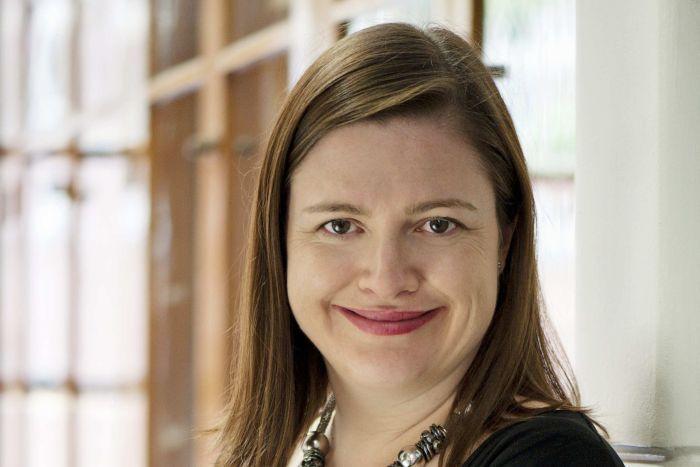Chief defence scientist: working with combat personnel is key
Posted By Brendan Nicholson on May 31, 2019 @ 06:00

Australia’s new chief defence scientist says she has taken on the role at a time when the Australian Defence Force is becoming increasingly receptive to game-changing capabilities.
‘That, to me, is really critical’, Professor Tanya Monro says.
A physicist, Monro was working in Britain 15 years ago when she was asked by what is now Defence Science and Technology (DST) to return to Australia to set up a photonics research facility in Adelaide. Photonics is the science of light—how it can be generated, detected and made use of—and it’s a key research area for Defence in the development of sensors, lasers and new optical materials.
Now she is in charge of DST, having taken over from Alex Zelinsky, who has become vice-chancellor of Newcastle University.
Monro will oversee the investment in key projects of the $730 million Next Generation Technologies Fund. ‘The whole intent of Next Gen is to put the focus on things that will disrupt and support and create capability edge for the ADF. That includes identifying things that adversaries would potentially put into the mix that could disrupt our current approach to safeguarding Australia’, she says.
So are there more ideas out there as good as the Australian-designed CEAFAR phased-array radar and the Nulka ship defence system?
‘I absolutely think there are, but we can’t do all of them. We’ve got to have the conversation to decide on the really big things we can do on a national scale. Ideally they’ll be in areas where we’ve already got an edge’, Monro says.
One such area is in space technologies, in using and harnessing small satellites and constellations of small satellites. Others are in quantum computing and hypersonics. ‘It’s everything from new materials that will change how we protect our serving personnel, right through to new ways of integrating information that comes from multiple elements of a conflict in a way that can allow you to make better decisions.’
Autonomy is a big area of focus for DST, along with machine learning and artificial intelligence.
‘There’s no question we’re moving into a world where data is becoming more complex, rich and ubiquitous. And where understanding, processing and turning data into information to support decision-making is becoming more and more critical. This is absolutely key for us. One thing that strikes me in this place is you lift the lid and you look, and just the range and number of things being worked on is mind-blowing. And in most of those, we’re closely partnered with the ADF’, Monro says.
‘The game is to try to think big and work on some of these really challenging longer-term areas because there’s no point having the best solution to today’s problems if something new comes and knocks that over.’
No other such institution is so deeply enmeshed with its partners than DST is with the ADF’s combat personnel, Monro says. ‘That means our people, whether they’re an early career researcher coming straight from the university system or someone who’s been here for decades, get that intimate understanding of the problems the fighters face.
‘The Next Gen program will allow DST and the ADF to harness the amazing capacity in the Australian research system across the 40-odd universities and other publicly funded agencies and see where we can align and shape the direction of some of the work that’s happening out there.
‘Together we can have bigger teams of really strong researchers tackling a smaller number of bigger problems. It’s more in the concept of expanding some national missions that are inspiring, exciting’, she says.
That will shape what’s happening not only within DST but more broadly across the universities and other institutions to build Australia’s future capability and mould some of the industry development that’s got to happen for the nation’s economic growth.
DST can’t do that by itself, Monro says, because it’s an organisation of just over 2,000 people and by itself it couldn’t provide the scale of effort and investment needed to develop some of these really big ideas.
‘You then need to have the mechanisms, the funding support to bring the best people together’, she says. ‘We’ve started to do that, and we’ll continue to develop that.’
The next step, she says, is to create an environment in which broad priority areas are narrowed down into specific big challenges, missions or questions that begin to shape what people do.
‘DST has a special role in that because we’re so meshed with the ADF we have an understanding of what might be some of the threats into the future, what we should worry about, not just today but in 10 years-plus’, says Munro.
‘And then we can help shape that conversation and narrow down to the problems we want to work on. Sometimes I think in Australia we lack that willingness to make a call, set priorities and tie them to funding.’
Monro says the goal is to harness the nation’s intellectual capital. ‘If you bring together the best people in the nation in a field, and you resource that conversation, you can create a roadmap for ideas on what might be possible.’
Article printed from The Strategist: https://aspistrategist.ru
URL to article: /chief-defence-scientist-working-with-combat-personnel-is-key/
Click here to print.